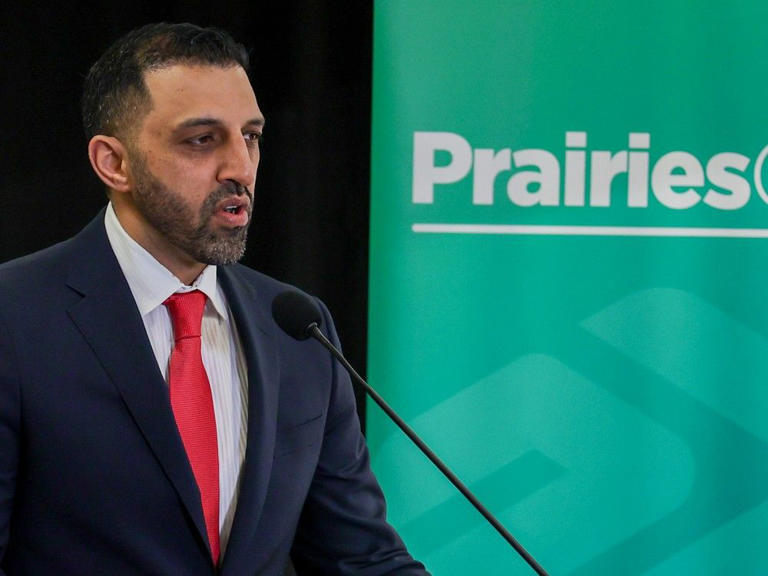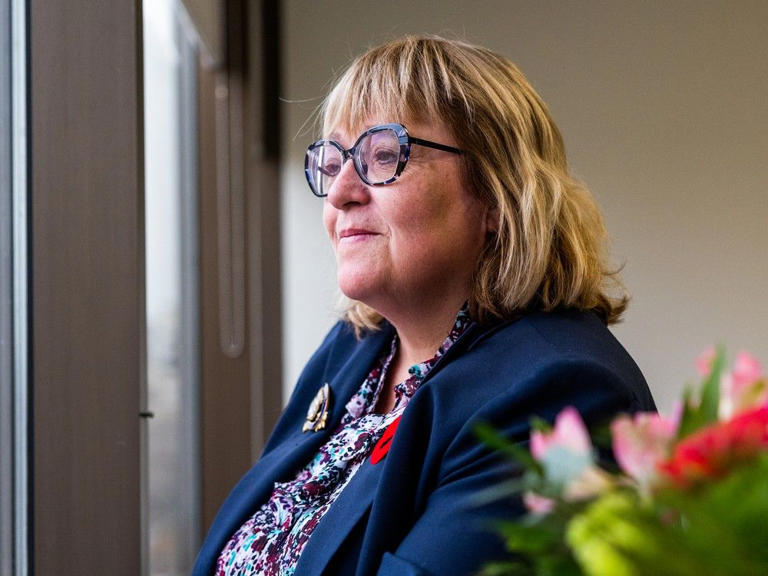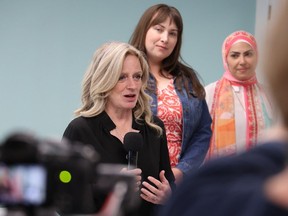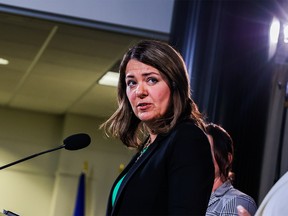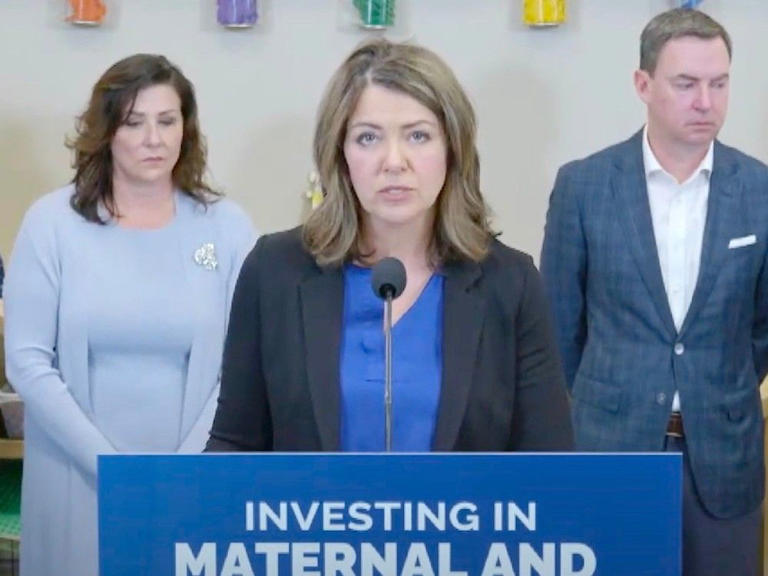Thais cheer poll winner Move Forward as opposition parties agree to coalition
Story by By Chayut Setboonsarng and Panu Wongcha-um •
REUTERS
Tuesday, May 16,2023

Thailand general election© Thomson Reuters
BANGKOK (Reuters) - Thailand's two main opposition parties agreed on Monday to form a ruling coalition after they trounced in a weekend election military-backed rivals that have controlled government for nearly a decade.
The Move Forward party and opposition heavyweight Pheu Thai dominated Sunday's ballot in a rout of army-backed parties, but could face challenges in mustering enough support to vote in a prime minister, with parliamentary rules drafted by the military after a 2014 coup skewed in favour of its allies.

Thailand general election© Thomson Reuters
Their alliance would need to ensure its efforts to form a new government would not be stymied by a junta-appointed Senate, which gets to vote on a prime minister in a bicameral sitting of the 750-member legislature, and has a record of favouring conservative parties led by generals.
Pita Limjaroenrat, Move Forward's 42-year-old leader proposed an alliance of six parties that would command 309 seats. That would be short of the 376 seats needed to ensure he was elected as prime minister.

Thailand general election© Thomson Reuters
Asked about the Senate, he said all sides must respect the election outcome and there was no use going against it.
"I am not worried but I am not careless," he told a press conference.
"It will be quite a hefty price to pay if someone is thinking about debunking the election result or forming a minority government."
Pheu Thai, controlled by the billionaire Shinawatra family said it agreed with Pita's proposal and wished him luck in efforts to become prime minister.

Thailand general election© Thomson Reuters
The party had won most seats in every election this century, including twice in landslides, but met its match against Move Forward as it came close to a sweep of the capital Bangkok and made gains in rivals' strongholds.
NO OTHER ALLIANCE
"Pheu Thai has no plan to form any other government," party leader Chonlanan Srikaew told a press conference.
Though the results appear to be a hammer blow for the military and its allies, with parliamentary rules on their side and some influential power-brokers behind them, they could determine the shape of a new government.
Move Forward was galvanized by a wave of excitement among the youth over its liberal agenda and promises of bold changes, including breaking up monopolies and reforming a law on insulting the monarchy.
The landslide victory of two progressive political parties in Thailand's
On Monday, Pita did a victory lap in Bangkok where thousands of supporters had gathered - some in the streets, others on rooftops - dressed in Move Forward's signature orange colour and chanting "Prime Minister Pita".
Thai opposition crush military parties in election
Student Pirag Phrasawang, 22, said he was "overwhelmed and excited to see change finally come to the country".
"My voice has been neglected for a long time. I'm glad that people finally woke up and responded to Move Forward's policies."
Pita has said Move Forward would press ahead with its plan to amend strict lese majeste laws against insulting the monarchy, which critics say have been used to stifle free speech. Thailand's palace does not comment on the law or its use.
The law punishes perceived insults by up to 15 years in prison, with hundreds of people facing charges, some of whom are in pre-trial detention.
Pita said parliament would be the right forum to seek amendments to the law, or article 112 of the criminal code.
"We will use the parliament to make sure that there is a comprehensive discussion with maturity, with transparency in how we should move forward in terms of the relationship between the monarchy and the masses," he said.
Asked if Pheu Thai would back that, Paetongtarn Shinawatra, one of its main candidates, said it could be discussed in the legislature.
"Pheu Thai has a clear stand that we won't abolish 112 but there can be a discussion about the law in parliament," she said.
(Reporting by Panarat Thepgumpanat, Chayut Setboonsarng, Juarawee Kittisilpa and Panu Wongcha-um; Writing by Martin Petty; Editing by Robert Birsel)
Thailand’s opposition won a landslide in elections. But will the military elite let them rule?
Story by Helen Regan • CNNTuesday, May 16, 2023
Like a good democracy, now comes the horse trading.
Hear from supporters of winning party in Thailand's election
Thai voters delivered a powerful message to the country’s military-backed government on Sunday: you do not have the will of the people to rule.
The progressive Move Forward Party, which gained a huge following among young Thais for its reformist platform, won the most seats and the largest share of the popular vote.
Pheu Thai, the main opposition party that has been a populist force in Thailand for 20 years, came second.
Together they delivered a crushing blow to the conservative, military-backed establishment that has ruled on and off for decades, often by turfing out popularly elected governments in coups.
“This is an unmistakable frontal rebuke, a rejection of Thailand’s military authoritarian past. It’s a rejection of military dominance in politics,” said Thitinan Pongsudhirak, a political scientist from Chulalongkorn University.
Over the last two decades, each time Thais have been allowed to vote, they have done so overwhelmingly in support of the military’s political opponents. Sunday’s vote – which saw a record turnout – was a continuation of that tradition.
But despite winning a landslide, it is far from certain who will be the next leader.

Thailand’s opposition won a landslide in elections. But will the military elite let them rule?© Provided by CNNSupporters of the Move Forward Party react as they watch results come in at the party headquarters in Bangkok on May 14, after polls closed in Thailand's general election. - Jack Taylor/AFP/Getty Images
That’s because the military junta that last seized power in 2014 rewrote the constitution to ensure they maintain a huge say in who can lead, whether or not they win the popular vote.
Neither opposition party won an outright majority of 376 seats needed to form a government outright, they will need to strike deals and wrangle support from other parties to form a coalition big enough to ensure victory.
But that won’t necessarily be straightforward.
Dangerous territory
The first thing to know is that any opposition party or coalition hoping to form a government must overcome the powerful voting bloc of the senate.
Under the junta-era constitution, Thailand’s unelected 250-seat senate is chosen entirely by the military and has previously voted for a pro-military candidate.
Because a party needs a majority of the combined houses – 750 seats – to elect a prime minister, it means opposition parties need almost three times as many votes in the lower house to be able to elect the next leader and form a government.
In 2019, coup leader Prayut Chan-o-cha won the senate votes which ensured his party’s coalition gained enough seats to elect him as prime minister, despite Pheu Thai being the largest party.
There are also other threats to the progressive movement’s win. Parties that have previously pushed for change have run afoul of the powerful conservative establishment – a nexus of the military, monarchy and influential elites.

Thailand’s opposition won a landslide in elections. But will the military elite let them rule?© Provided by CNNMove Forward Party leader and prime ministerial candidate, Pita Limjaroenrat, attends a press conference following the general election, at the party's headquarters in Bangkok, Thailand, on May 15. - Athit Perawongmetha/Reuters
Lawmakers have faced bans, parties have been dissolved, and governments have been overthrown. Thailand has witnessed a dozen successful coups since 1932, including two in the past 17 years.
And the purportedly independent election commission, anti-corruption commission and the constitutional court are all dominated in favor of the establishment.
In the progressive camp’s favor, however, is their large margin over the military-backed parties.
“If the results were murky, or if the pro-military parties got more, then we would be looking at manipulation, trying to shave the margins. But the results are so clear and very difficult to overturn now,” said Thitinan, adding that if there were attempts to subvert the vote, there would be public anger and protests.
Move Forward’s predecessor the Future Forward Party won the third most seats in the 2019 election. Shortly afterward, several of the party’s leaders were banned from politics and the party was later dissolved after a court ruled it violated electoral finance rules.
In the short term, that decision ended the threat from the Future Forward Party. But it also, in many ways, laid the foundation for Sunday’s historic vote.
Youth-led protests erupted across Thailand in 2020 after Future Forward was dissolved and a whole new generation of young political leaders were born, some of whom were willing to debate a previously taboo topic – royal reform.
Those calls electrified Thailand, where any frank discussion of the monarchy is fraught with the threat of prison under one of the strictest lese majeste laws in the world.
Many youth leaders were jailed or face ongoing prosecution linked to those protests. But some also went on to create the Move Forward party that swept to victory in the popular vote on Sunday.
That leaves the military establishment now locked in a political battle with a party that has kept the subject of royal reform on its manifesto.
Experts have said another coup would be costly, and dissolving a party with such a mandate would be “drastic.”
“Dissolving a party is a fairly drastic move. If there’s a way of keeping Move Forward out without dissolving them, then conservative politicians would probably prefer to do that. Because it’s not as strong a step in subverting the will that people have expressed,” said Susannah Patton, director of the Southeast Asia Program at the Lowy Institute.
“But you can’t rule that out.”
Vote for change cannot be ignored
Move Forward’s allure went beyond the youth vote on which it built its base.
Unofficial results showed the party captured 32 out of 33 seats in Bangkok – traditionally a stronghold for conservative parties.
“What this shows is that people who are living in urban areas are really fed up with the government that the military has provided for almost a decade,” said Patton.
“They are wanting to choose something different, and Move Forward is not just the youth party but actually can attract a wider cross section of support as well.”
Move Forward’s radical agenda includes reforming the military, getting rid of the draft, reducing the military’s budget, making it more transparent and accountable, as well as constitutional change and to bring the military and monarchy within the constitution.
The party’s win over the populist juggernaut Pheu Thai is also significant. This is the first time a party linked with ousted Prime Minister Thaksin Shinawatra has lost an election since 2001.
And Pheu Thai’s marginal defeat to Move Forward shows voters’ frustration with the old cycle of politics that pitted populist Thaksin-linked parties against the establishment.
Thailand’s “two party system was already breaking down in 2019, but it’s continuing to break down this election,” said Patton.
In a press conference on Monday, Move Forward leader Pita Limjaroenrat said the party would go forward with plans to amend the country’s strict lese majeste laws – a key campaign pledge despite the taboo surrounding any discussion of the royal family in Thailand.
One of his priorities is to support young people facing jail terms on lese majeste charges, and Pita warned that if the law remains as it is, the relationship between the Thai people and the monarchy will only worsen.
His policies “strike at heart of the establishment,” said Thitinan, and even talking about the monarchy openly “is an affront to the palace.”
The Move Forward leader said Monday that he wants to form an alliance with the four other opposition parties to secure a majority in the lower house.
It could take 60 days before a prime ministerial candidate is endorsed by Thailand’s combined houses of parliament, but Sunday’s vote shows the people are ready for change.
However, if Thailand’s turbulent recent history is anything to go by, that could mean little. The military has shown in the past that it has few qualms about ignoring the popular vote.
CNN.com
Thailand's Senate could hold the key for hopeful election winner
Story by By Panarat Thepgumpanat • May 15

Thailand general election© Thomson Reuters
BANGKOK (Reuters) - Thailand's Move Forward party announced on Monday that it had sufficient votes to form a coalition government but a military-appointed Senate, the party's position on a royal insult law and a complaint against its leader may stand in the way.

Thailand general election© Thomson Reuters
Pita Limjareonrat, 42, led the Move Forward party to a stunning victory in Sunday's general election, winning the highest number of seats, ahead of another opposition party, the political heavyweight Pheu Thai.
The victory of the two opposition parties may pave the way to ending nearly 10 years of military-backed governments led by a former army chief, Prime Minister Prayuth Chan-ocha, whose newly formed party won a small fraction of the seats that the opposition parties did.
"I am ready to become Thailand's 30th prime minister," Pita declared, explaining that his party and its five prospective coalition partners, including Pheu Thai, would secure 309 seats in the 500-seat lower house of parliament.

Thailand general election© Thomson Reuters
However, to be indisputably in a position to become prime minister he needs to be able to command a majority in a joint sitting of the bicameral legislature, which includes 250 members of a military-appointed Senate.

Thailand general election© Thomson Reuters
So he needs 376 members of a joint session to vote for him.
Reuters spoke to six senators to try to gauge the mood of the upper house. Some of them suggested they would not necessarily vote with the majority in parliament, even though that reflected the will of the people as expressed on Sunday.
Related video: Analysis: Two Scenarios for Post-Election Thailand - TaiwanPlus News (TaiwanPlus)
Senator Somchai Sawangkarn said his vote for who becomes prime minister would based on his criteria and a lower-house majority alone was not sufficient.
"The person must be honest and not cause problems in the country," Somchai said.
"Hitler was elected in a majority but led the country to world war ... If there is a possibility of creating division in the country, I will not vote for them," he said.
Another, Kittisak Rattanawaraha, said the next leader must be loyal to the nation, religion and king and not corrupt, echoing themes upheld by Move Forward's conservative opponents.

Thailand general election© Thomson Reuters
A polarising issue for Move Forward is its position on amending a strict royal insult law, which sets out a sentence of up to 15 years for defaming the monarchy.
Critics says conservative governments have used the law to stifle dissent but conservatives are fiercely opposed to any suggestion of amending it.
The royal family is officially above politics and the king constitutionally enshrined to be held in "revered worship".
Senator Jet Sirathananon said he would respect the wishes of the majority.
"The Senate should not block the work of parliament. Based on what we saw yesterday, we'll respect people's votes," he said.
One senator said he would abstain on the grounds that it was the duty of the lower house to select the prime minister.
Another danger that Pita faces could come from the courts.
According to a complaint filed with the Election Commission before the vote, Pita broke electoral rules because he holds shares in a media company.
Pita said he was ready to explain that there was no wrongdoing and the allegation was a distraction.
"The road for Move Forward is just starting and it will not be smooth," said Ben Kiatkwankul, partner at Maverick Consulting Group, government affairs advisory.
(Additional reporting by Chayut Setboonsarng; Editing by Robert Birsel)




















